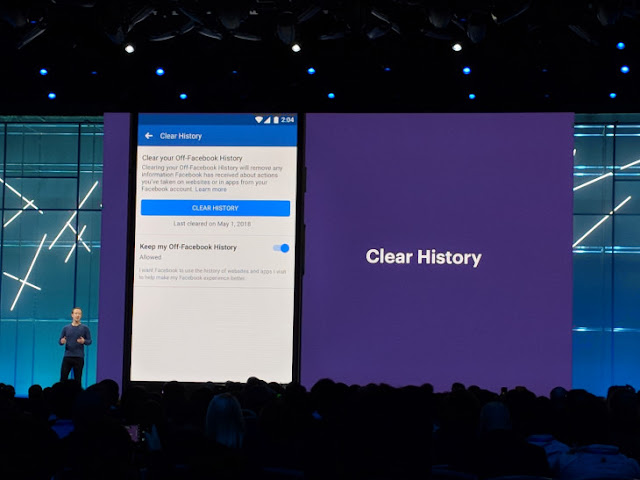Jamie
Metzl is a Senior Fellow for Technology and National Security at the Atlantic
Council.
More posts by this contributor
·
Homo Sapiens 2.0? We need a species-wide conversation about the
future of human genetic enhancement
Eleonore
Pauwels is Director of the Anticipatory Intelligence Lab at the Wilson Center
Outrage that Facebook
made the private data of over 87 million of its U.S.
These legitimate
concerns about the privacy threat these companies potentially pose must be
balanced by an appreciation of the important role data-optimizing companies
like these play in promoting our national security.
In
his testimony to the combined US Senate Commerce and Judiciary Committees,
Facebook CEO Mark Zuckerberg was
not wrong to present his company as a last line of defense in an “ongoing arms
race” with Russia and others
seeking to spread disinformation and manipulate political and economic systems
in the US
The vast majority of
the two billion Facebook users live outside the United
States , Zuckerberg argued, and the US
Facebook “a deeply untransparent, out-of-control company that encroaches on its users’ privacy, resists regulatory oversight and fails to police known bad actors when they abuse its platform.” US Senator Bill Nelson made a similar point when he asserted during the Senate hearings that “if Facebook and other online companies will not or cannot fix the privacy invasions, then we are going to have to. We, the Congress.”
While
many concerns like these are valid, seeing big US
technology companies solely in the context of fears about privacy misses the
point that these companies play a far broader strategic role in America Russia is rising as a threat in cyberspace, China
Data
is to the 21st century what oil was to the 20th, a
key asset for driving wealth, power, and competitiveness. Only companies with
access to the best algorithms and the biggest and highest quality data sets
will be able to glean the insights and develop the models driving innovation
forward. As Facebook’s failure to protect its users’ private information shows,
these date pools are both extremely powerful and can be abused. But because
countries with the leading AI and pooled data platforms will have the most
thriving economies, big technology platforms are playing a more important
national security role than ever in our increasingly big data-driven world.
China, which has set a
goal of becoming “the world’s primary AI innovation center” by 2025, occupying
“the commanding heights of AI technology” by 2030, and the “global leader” in
“comprehensive national strength and international influence” by 2050,
understands this. To build a world-beating AI industry, Beijing
Examples of China
Close
to a billion Chinese people use Tencent’s instant communication and cashless
platforms. In October 2017, Alibaba announced a three-year
investment of $15 billion for developing and integrating AI and cloud-computing technologies that will power
the smart cities and smart hospitals of the future. Beijing
In all of these areas,
China Beijing
“In
the age of AI, a U.S.-China duopoly is not just inevitable, it has already
arrived,” said Kai-Fu Lee, founder and CEO of
Beijing-based technology investment firm Sinovation Ventures and a former top
executive at Microsoft and Google. The United
States should absolutely not follow China Europe ’s lead and do significantly more to enhance them.
But we also cannot blind ourselves to the critical importance of amassing big
data sets for driving innovation, competitiveness, and national power in the
future.
In
its 2017 unclassified budget, the Pentagon spent about $7.4 billion on AI,
big data and cloud-computing, a tiny fraction of America U.S.
FBI
Director Christopher Wray correctly
pointed out that America has
now entered a “whole of society” rivalry with China United States
America
will be more innovative the more we nurture a healthy ecosystem of big, AI
driven companies while also empowering smaller startups and others using
blockchain and other technologies to access large and disparate data pools.
Because breaking up US
American prosperity and global power in the 21st century, extreme caution is in order.
American prosperity and global power in the 21st century, extreme caution is in order.
But it would be
self-defeating for American policymakers to not at least partly consider America ’s tech giants in the context of the
important role they play in America America
definitely needs significantly stronger regulation to foster innovation and
protect privacy and civil liberties but breaking up America


















No comments:
Post a Comment